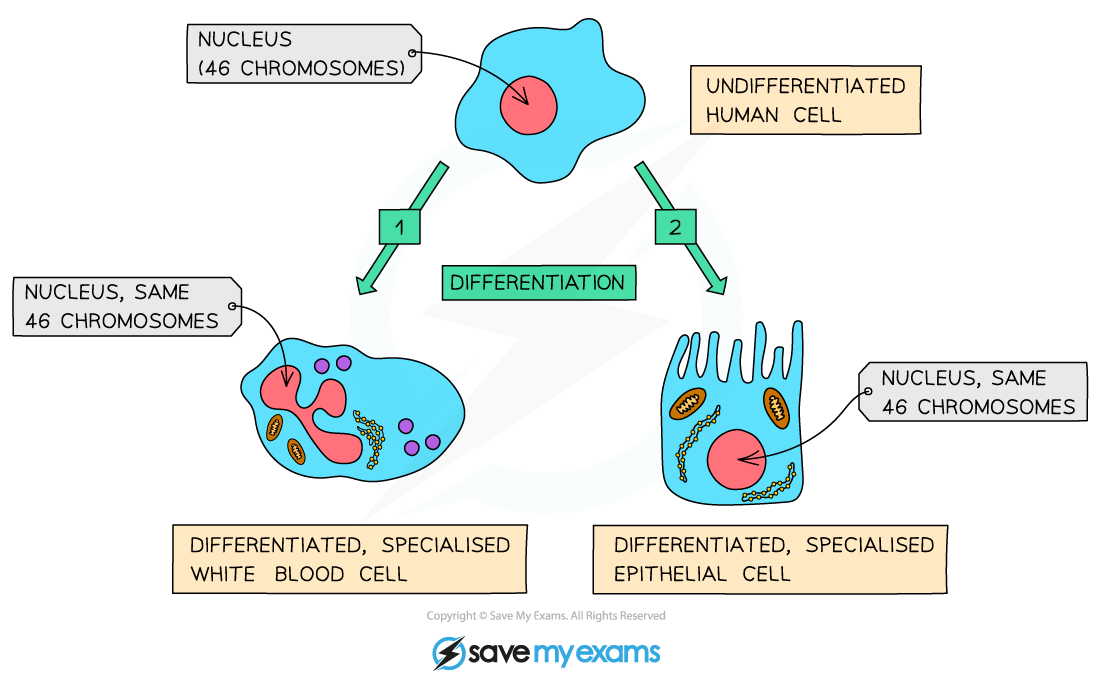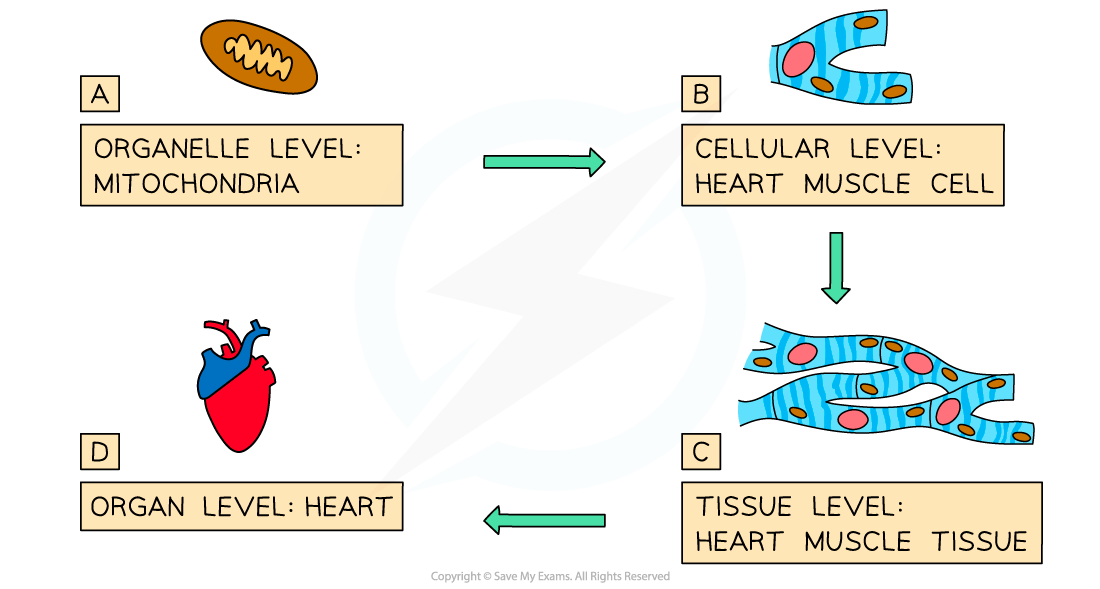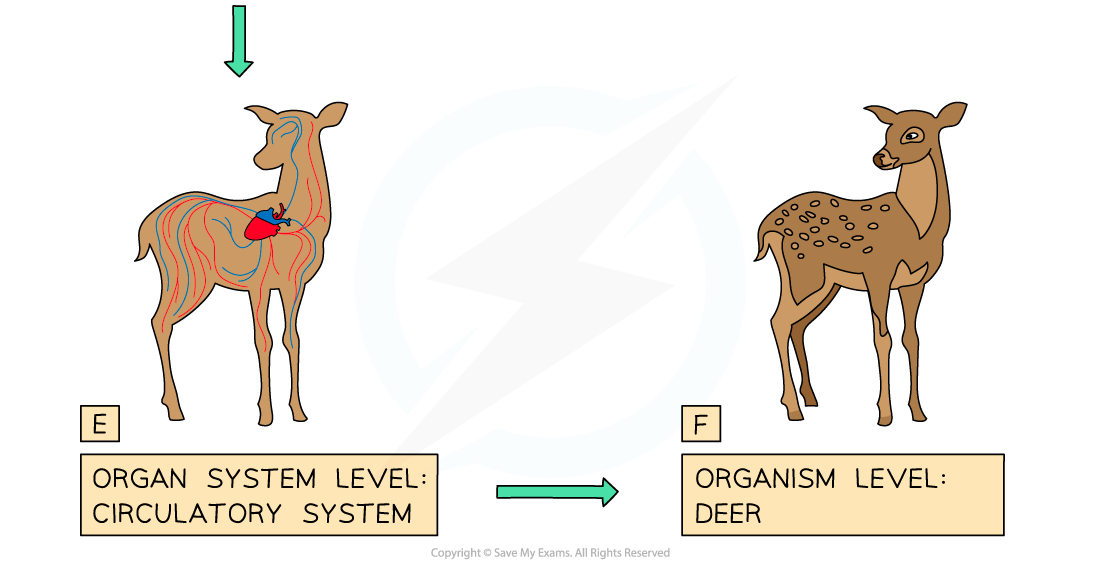Organisation of Cells (SQA National 5 Biology): Revision Note
Exam code: X807 75
Specialised cells
A specialised cell is a cell that has a structure that aids its specific function
This could relate to cell shape or the combination of cellular structures present within the cell
Cells specialise by undergoing a process known as differentiation
When a cell differentiates, it synthesizes organelles and new features which enable it to carry its required function
E.g. to form a nerve cell, the cytoplasm and cell membrane of an undifferentiated cell must elongate to form connections over large distances
Examples of specialised cells in animals include:
Sperm cells
Egg cells
Nerve cell

Examiner Tips and Tricks
You are not required to know any specific types of specialised cells, but it is a good idea to note how specialised cells have their own unique shape and structures to enable them to perform their own specialised functions.
Levels of organisation
In complex multicellular organisms:
Cells are specialised to carry out particular functions
These specialised cells work together to form tissues
The tissues form organs
The organs work together to form organ systems



Unlock more, it's free!
Was this revision note helpful?
